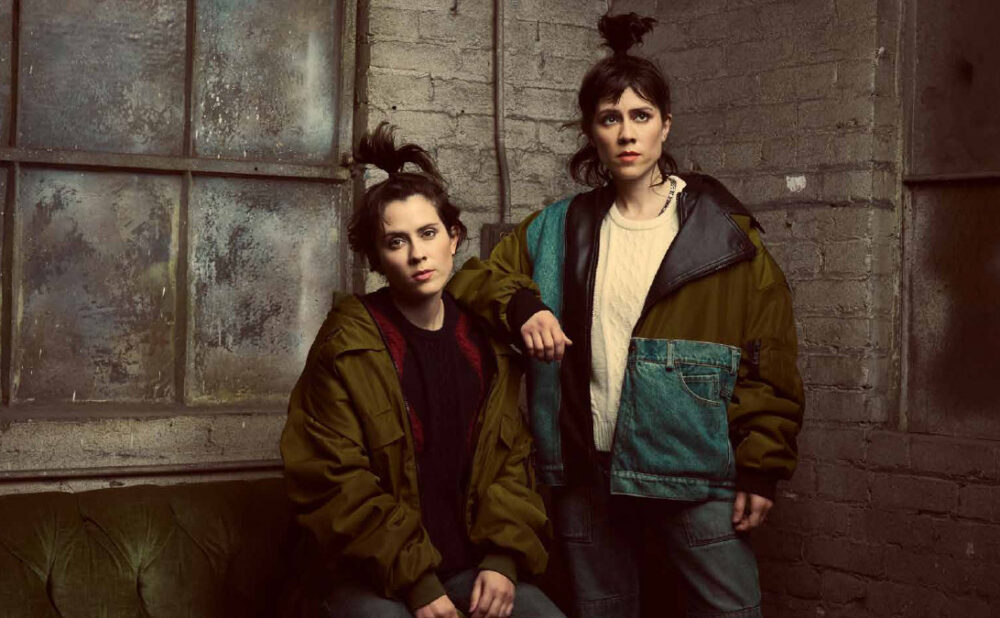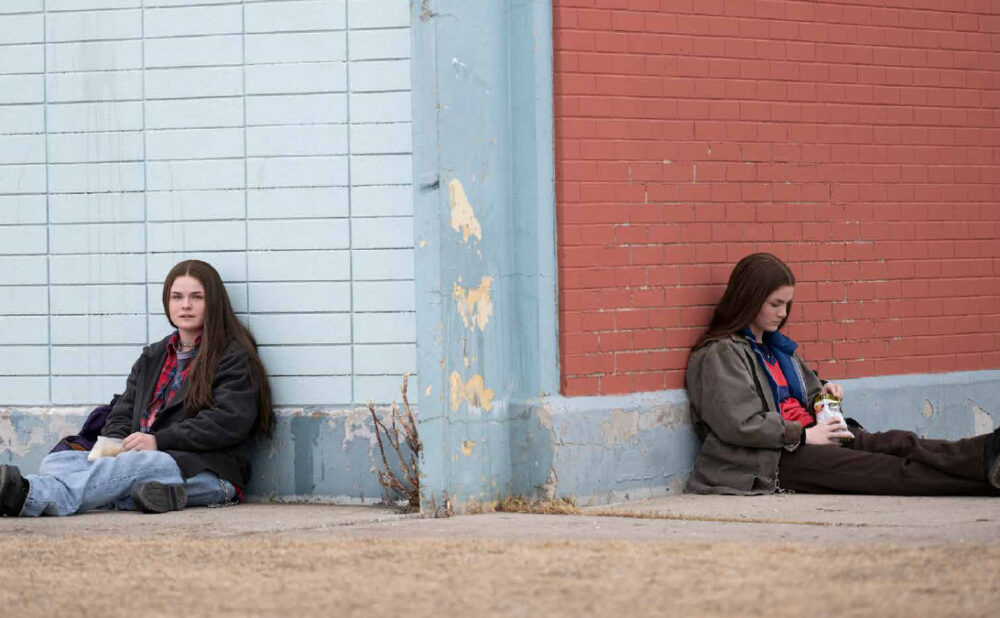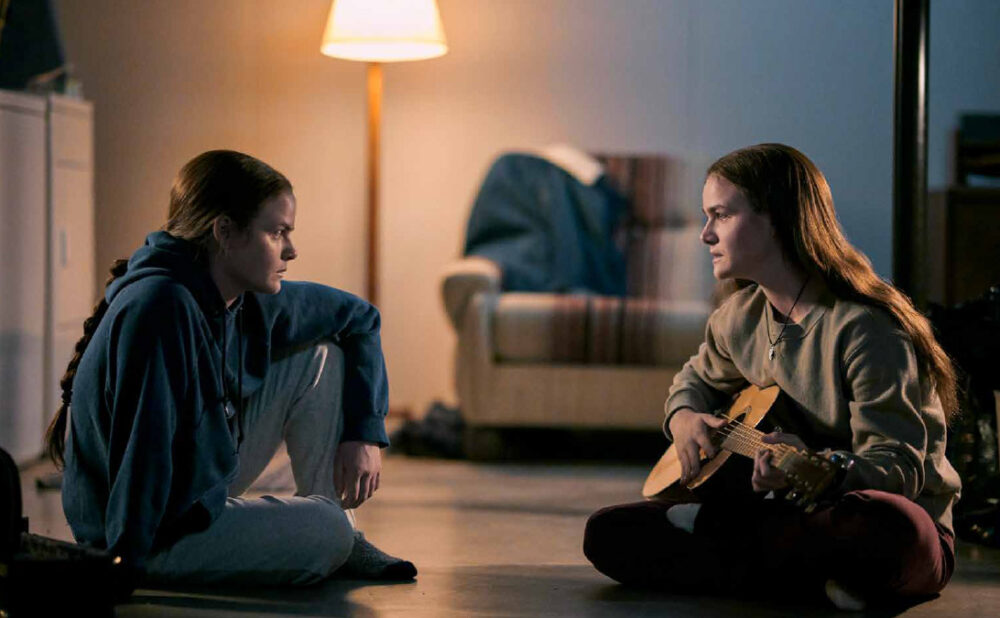Tegan and Sara “pass notes” in high school
Shared teenaged letters are at core of new series based on their memoir
High School
Where: Prime Video
What: Series, 8 episodes, 30 mins.
When: Now, new episodes Fridays
Genre: Drama
Why you should watch: Based on Tegan and Sara’s bestselling memoir of the same name, High School is oftentimes gritty and raw, but so is teenagehood. With a brilliant score and a heart-wrenching commitment to depicting the ups and downs not only of growing up gay in Calgarian suburbs in the ’90s but also what it looks like to craft an identity that is all one’s own, High School reminds us of the possibilities the coming-of-age genre contains.
About halfway through the Amazon Original series High School, based off Tegan and Sara Quin’s 2019 bestselling memoir of the same name, the girls’ friend Maya (Amanda Fix) asks Tegan (Railey Gilliland), “Did you get my letter?”
“Yes, I read it like five times,” Tegan replies. In reading the memoir, watching the series and speaking with the Grammy-nominated and Juno Award-winning sisters at this year’s Toronto International Film Festival (TIFF) after the Clea DuVall- and Rebecca Asher-directed series premiered, this kind of letter-writing emerges as a subtle but direly crucial aspect in the story of High School and also the Quins’ lives.
“Tegan and I were not academically driven in high school, but here we were involved in what essentially was a creative writing exercise almost daily,” Sara tells me of their letter-writing as teens. “We were obsessed with writing; we were learning to talk about ourselves and to individuate and to be storytellers.”
The sisters turned to this trove of writing as they worked on their memoir and then the show. In the memoir and in the show, these notes — passed on lined paper torn from notebooks or in journals Tegan shared with her best friends — tend to function as sacred and weighty carriers of confessions of feelings and inner turmoil. They’re also straightforward descriptions of sequences of experiences or fights and work to document aspects of the Quins’ lives in remarkable detail. It’s impossible not to pick up on the significance of letter-writing in their lives.
“It’s really interesting actually, because when Seazynn [Gilliland, who portrays Sara] and Railey were in L.A. before we started shooting the show, their acting coach had suggested that they get journals and write about their experience but kind of write from the perspective of their character, which I thought was really interesting,” Tegan says. “And Railey called me one day and was like, ‘I’m at the mall, what kind of journal did you write in, in high school?’”
A form of note-writing even came into play as the sisters executive-produced the show. As DuVall and producer Laura Kittrell worked on worldbuilding and scriptwriting, they would send along scripts to Tegan and Sara.
“We would send back notes and talk about what felt right, what didn’t,” Tegan says. She says that as executive producers, their role in development was focused more on being a source of information and protecting their real-life family and friends from misrepresentation.
Formatting their life story for TV — that is, adding narrative arcs and the friction necessary for compelling drama — remained within the bounds of reality.
“Seeing it with an audience and seeing how people were enjoying it and going through the emotions, I was like, ‘Thank goodness this is not a biopic, this is not everyone in costume pretending to be us and our friends and our family’,” she says.
“Because even I was really able to step back and enjoy it. This is a story about girls and queerdom and art and creativity in the ’90s and adolescence and all these things. And it didn’t feel like, ‘This is the Tegan and Sara story,’ ’cause it’s not.”
In stark contrast to their memoir, which alternates between the girls’ accounts of adolescence in Calgarian suburbia, the series depicts a much more vibrantly populated world. In addition to Sara and Tegan portrayed by real-life twins Seazynn and Railey, respectively, we also see events through the points of view of their mother, here called Simone (Cobie Smulders), their step-father Patrick (Kyle Bornheimer), Sara’s girlfriend Phoebe (Olivia Rouyre) and Tegan’s friend Maya. It’s an alive and moving world, oftentimes the same events are depicted twice or three times with added meaning.
I ask them whether this note and letter-writing impacted them as lyricists and memoirists.
“I was utterly astonished by how much confidence I had when I went back to read the notes,” Sara says. “Not just confidence to perform for people, but really that early instinct to record ourselves and listen to ourselves. We were not like, ‘Oh my god, we’re so bad.’ We were like, ‘I’m fucking amazing. You should really listen to this’.”








